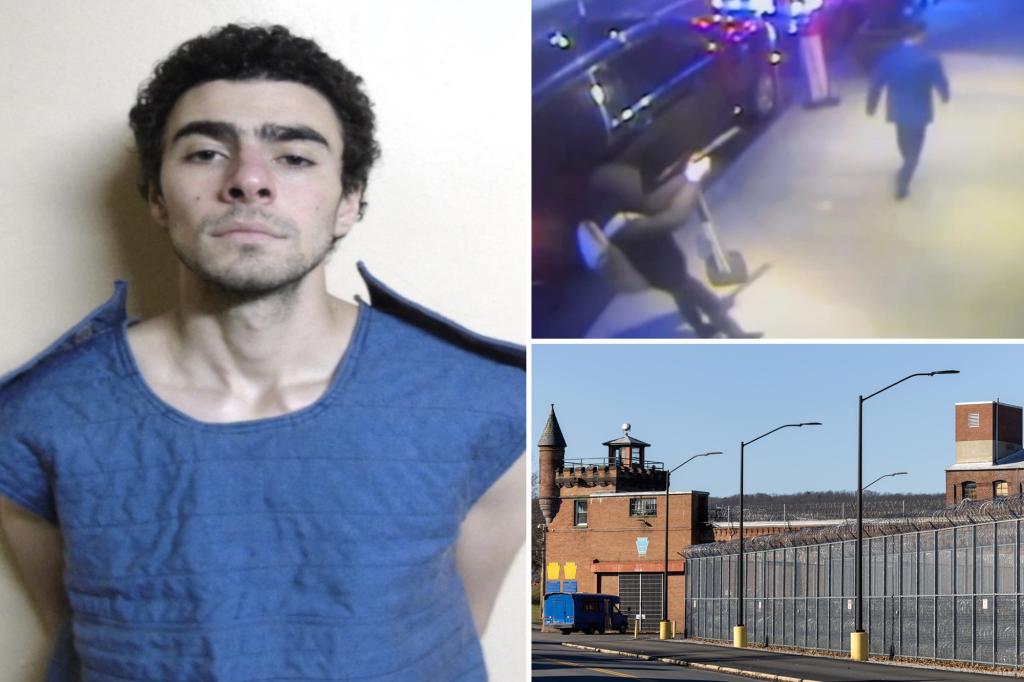Luigi Mangione, a 26-year-old University of Pennsylvania graduate from a prominent Maryland family, is facing an unprecedented first-degree murder charge as an act of terrorism in the December 4th shooting death of UnitedHealthcare CEO Brian Thompson. Mangione, who is expected to waive extradition from Pennsylvania, will be brought back to Manhattan to face an 11-count indictment. The charge, typically reserved for cases involving law enforcement or witnesses, marks the first time in Manhattan such a charge has been levied with a terrorism enhancement. The Manhattan District Attorney, Alvin Bragg, justifies the elevated charge by asserting that the crime, committed outside a Midtown Hilton hotel, was “intended to provoke terror,” aimed at causing “shock, attention, and intimidation.” This claim is supported by NYPD Commissioner Jessica Tisch, who cited online celebrations of the murder, denouncing Mangione’s actions as devoid of heroism.
However, the application of the first-degree murder charge with a terrorism enhancement is being met with skepticism from legal experts. Veteran defense attorney Ron Kuby argues that the charge is a “reach” and constitutes “wild overcharging” by Bragg, motivated by a desire for sensational headlines. Kuby suggests that labeling Mangione a terrorist politicizes the case, particularly given the discovery of a manifesto-like document allegedly written by Mangione that criticized UnitedHealthcare and health insurance companies for corporate greed. This move, Kuby posits, allows Mangione’s political views to become central to the trial, a development initiated by the prosecution itself. Jason Goldman, another Manhattan defense attorney, concurs that the charge is uncommon, speculating that it may be a strategic move by the prosecution to later secure a lesser verdict through compromise during the trial. While acknowledging the killing’s impact, Goldman questions whether instilling terror was the primary motive or merely an unintended consequence.
The unusual application of the terrorism enhancement raises concerns about the influence of public opinion and social media on the trial’s outcome. Former Manhattan prosecutor and defense attorney Mike Discioarro warns that the online fervor surrounding the case could sway jurors, highlighting the potential for a single “wildcard” juror to disrupt the proceedings. He suggests that the pervasive nature of social media adds to the risk of jurors being influenced by external narratives. This concern underscores the challenge of ensuring a fair trial when a case is subject to widespread public discussion and strong opinions, particularly in the age of readily accessible online platforms.
Mangione, initially resisting extradition, is now anticipated to relinquish his fight during a hearing in Pennsylvania. He will first appear in court on Thursday morning for gun charges stemming from his arrest, followed by a second appearance where he is expected to formally waive extradition back to New York. The charges against Mangione include two counts of second-degree murder, carrying a potential sentence of 25 years to life, and multiple counts of weapon possession and second-degree forgery. The prosecution has presented evidence suggesting premeditation, including the use of a 3D-printed “ghost gun” equipped with a homemade silencer. The indictment details how the masked gunman approached Thompson from behind, shooting him in the back and leg. The words “DENY,” “DEPOSE,” and “DELAY” were found inscribed on shell casings and a bullet at the scene, further adding to the complexity of the case.
The events leading up to Mangione’s arrest reveal a carefully planned escape. Following the shooting, Mangione fled the scene on an e-bike, then took a taxi uptown before eventually leaving the state. He had been residing at a hostel on the Upper West Side for over a week under the alias “Mark Rosario,” using a fake New Jersey ID. This meticulous planning suggests a degree of premeditation, which will likely be a key factor in the prosecution’s case. His eventual capture at a McDonald’s in Altoona, Pennsylvania, five days after the shooting, brought an end to the manhunt.
The case against Luigi Mangione is poised to be a complex legal battle, with the terrorism enhancement adding an unprecedented dimension. The prosecution’s decision to pursue this charge, while legally permissible, raises questions about its strategic implications and the potential influence of public sentiment. The defense is likely to challenge the basis of the terrorism enhancement, arguing that the crime, while undeniably tragic and shocking, does not meet the threshold for such a severe charge. As the legal proceedings unfold, the court will grapple with the intricacies of applying terrorism statutes in a case that has captivated public attention and generated widespread debate. The outcome will undoubtedly set a precedent for future cases involving similar circumstances, shaping the legal landscape and potentially influencing how such crimes are prosecuted in the future.



